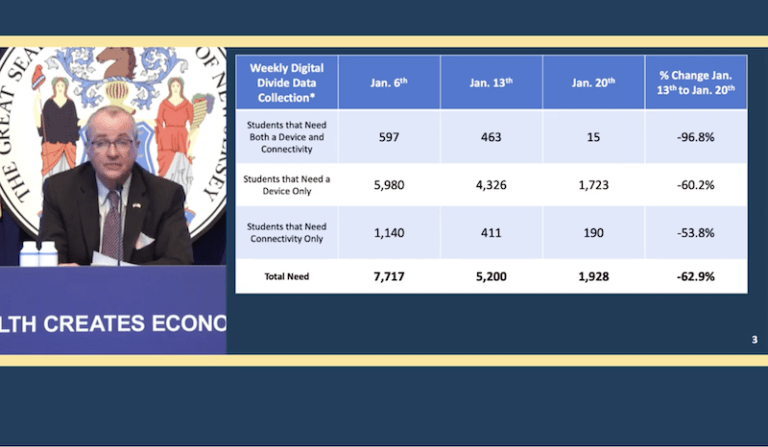By John Mooney
But debate is likely to take months, as hurdles ahead include Christie administration content with status quo for reviewing, approving new charters
statehouse
The latest and maybe best-chance version of a new charter-school law finally got its first public airing yesterday after more than three years of debate.
But don’t expect a final bill – let alone legislation ready to be signed into law – any time soon.
The Senate’s education committee, led by state Sen. Teresa Ruiz (D-Essex), yesterday held a two-hour hearing on her newly filed bill, which would rewrite the nearly 20-year-old charter-school law.
The bill would, most notably, create a new board in addition to the state to serve as an authorizing agency that would review and approve new charter applicants, then monitor their performance.
In addition, it would set up a process for filing charter applications, with specific plans, in individual school districts, as opposed to the statewide canvassing that happens now.
But the bill is just one of a handful in the Legislature seeking changes to the law. While Ruiz’s stature in the state Senate gives her legislation a head start, she said yesterday that there is a long way to go in gaining a consensus.
“This is just a start of the conversation,” she said at the close of the hearing.
Asked later what comes next, Ruiz said: “This will be months. We can’t rush this.”
Already months, if not years, in the works, Ruiz’s bill is a mix of ideas that have been long-discussed and couple of provisions that have been fiercely resisted.
For instance, the proposal for a separate authorizing board has been pushed for years by a number of groups, including the state’s charter-school advocates. A similar bill came before Ruiz’s committee three years ago.
But there is hardly consensus about even that, and it has faced resistance from the Christie administration, which says the existing procedure – with the state education commissioner and the state Department of Education making the final decision on charter applications — works just fine.
Notably absent from Ruiz’s bill is also any provision that would give local communities a definitive say on charter applications, a principle long pushed by some district leaders and advocates. The legislation only calls for public hearings on any new proposals.
Yesterday’s hearing added little new to the debate, but not for lack of trying.
On one side, a number of advocacy groups raised alarms about the growth of charters in the state, and the impact they have had on district public schools.
The Education Law Center, the Newark-based advocacy group, brought some new evidence indicating that the state’s long-standing count of 80-plus charters vastly undercounts the actual number of charter schools in New Jersey.
It said in a press release and again in testimony before the Senate committee that the state itself acknowledged in recent legal arguments that 23 of its approved charters encompassed more than one school, and it put the count at closer to 130 separate charter schools in the state.
Other critics called on state officials to get a better handle on the spread of charter schools – and especially charter networks — in New Jersey.
More>>



